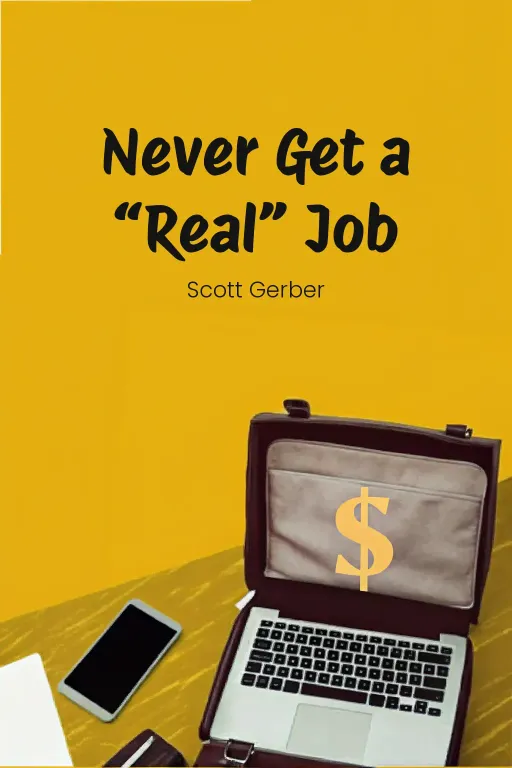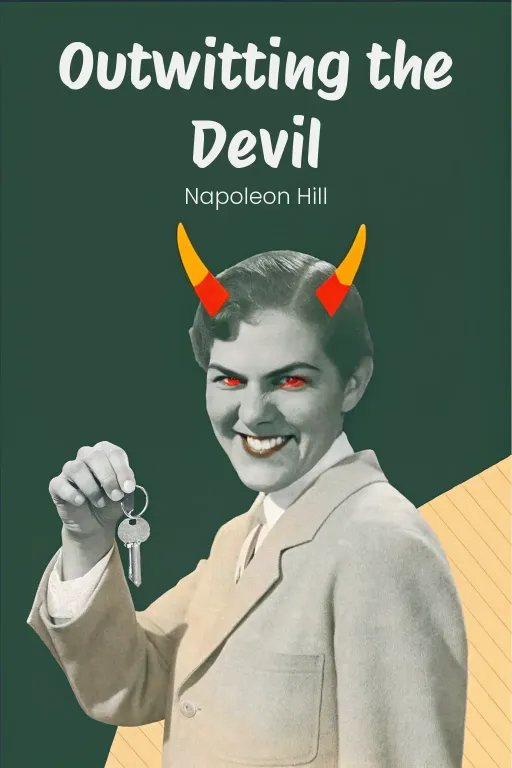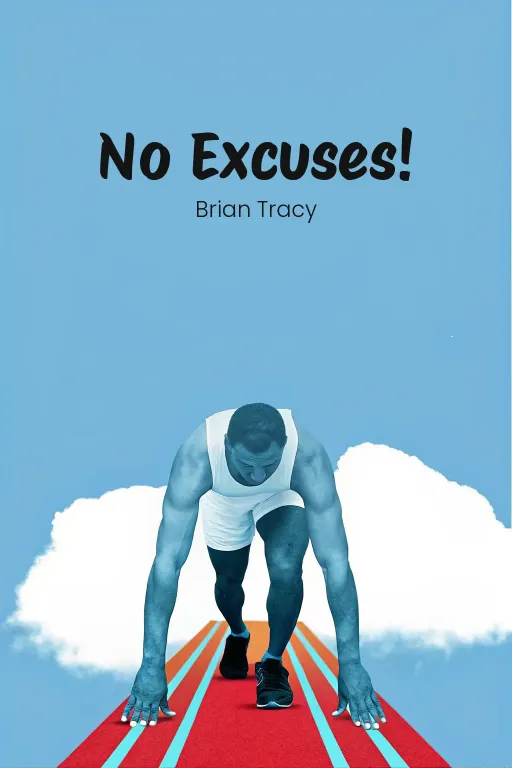
Dominate Life: Tiny Tweaks, HUGE Results
Podcast by Beta You with Alex and Michelle
Jumpstart Your Income, Your Life, Your Success
Dominate Life: Tiny Tweaks, HUGE Results
Part 1
Alex: Hey everyone, welcome back to the show! Today we're diving into a book that's a real game-changer: “The Compound Effect” by Darren Hardy. Ever wonder why some people just seem to accomplish so much more than others? This episode might just be the key. Michelle: Yeah, and let's be real, we're all secretly hoping for that magic bullet, right? But, Alex, if I had to guess, this isn't about magic, it's about… math? Those small, consistent choices adding up over time, right? We’re talking skipping a dessert today turning into winning a marathon a year from now? It sounds simple, maybe too simple? Alex: Exactly! It is simple, but definitely not easy. Hardy argues, pretty convincingly I think, that real success isn’t about those huge, dramatic leaps or overnight success stories. It’s about those consistent, almost invisible, daily actions that really shape our future. Michelle: Okay, so no flashy secrets, got it. So what's the main course we're serving up today? Give me the highlights. Alex: Happy to! We're breaking down three of the big ideas in the book. First, there's the "magic penny" effect. It's all about how small, seemingly insignificant decisions can just snowball into really massive results over time. Michelle: Right, like skipping that daily latte and, what, owning a private jet someday? Sounds a bit… optimistic, but alright, I’m listening. Alex: Then, we're going get into how to actually build habits that stick. I'm talking no more failed New Year's resolutions, no more empty promises to yourself. Michelle: Now you’re talking my language. If I have to hear one more, you know, "just be more disciplined" tip, I swear... Alex: And finally, we're going to look at Hardy's approach to building real momentum – think of it as like, jet fuel for your goals. It can help you push further, faster, than you ever thought you could. Michelle: Tiny choices, unbreakable habits, and metaphorical rocket fuel... Alright, it's piqued my interest. So what's the catch here? Seems too good to be true... Alex: No catch, promise! Just practical, actionable insights to “really” transform your mindset and your life. Ready to get into it all? Michelle: I'm ready to see if I'm buying what he's selling. Or if I'm going to be poking holes in it. Let's do it.
The Power of Small Choices
Part 2
Michelle: Hold on, Alex, let's be real. This is where people get hung up. If small choices are so powerful, why don’t they feel like they matter? I mean, skipping the gym or having a cookie, it's not a catastrophe, you know? Alex: Exactly! And that’s the exact trap Hardy talks about. The results of our decisions—good or bad—aren’t always obvious right away. It’s like the penny story, right? The one he uses? Michelle: Oh, yeah, the classic penny doubling every day for 31 days. So, at first, you’ve got, like, one cent, two cents… after a week, maybe you have a dollar. Meanwhile, someone else is laughing because they took the quick $3 million payout. But on day 31, your penny explodes into over ten million! Alex: Bingo! It’s not just about the money; it’s about how those consistent,seemingly insignificant actions create massive results. Days one through seven don't seem like much, but day 31 is huge. Michelle: Okay, I get the concept, but how does it play out in real life? Because most of us aren’t doubling pennies. And we're not exactly known for our patience. We expect results. Alex: Hardy illustrates this with three friends—let’s picture them. They start in the same place: job, health, lifestyle. One makes small improvements, maybe cutting 125 calories and walking more. The second just keeps doing what he’s doing. The third… well, he enjoys life a little too much, like adding a soda at night or skipping workouts. Michelle: Sounds familiar. One's a health nut, one's cruising, and the other is enjoying the present, consequences be damned. So what happens? Alex: Initially? Nothing huge. But 18 months later, the differences are shocking. The one making good choices is down 33 pounds, feeling great, and succeeding at work and in his relationships. The indulgent one? He’s gained weight, feels sluggish, and it's hurting his confidence and his health. And the middle guy? Still the same. Michelle: So, those small choices are either compounds for you or against you, right? There’s no real neutral ground? Alex: Precisely. Hardy compares each decision to a snowflake. One seems harmless. But add enough, and you get an avalanche of either success or problems. Michelle: Alright, so small choices matter. But if the impact is so subtle and the payoff is so far off, how does anyone find the motivation to keep going? Alex: Hardy addresses that through awareness and responsibility. He says it’s vital not to live on autopilot. Start by tracking your decisions. Writing down what you eat, how you spend money, or your exercise makes you hyper-aware of what’s working and what’s not. Michelle: So, I’m supposed to examine my life under a microscope and see how truly messy it is? Sounds… delightful. Alex: It’s not about self-criticism, it’s about gaining clarity, right? Hardy uses the analogy of a pilot. A pilot that’s off course by one degree doesn’t correct, he could end up hundreds of miles off target. Course-correcting constantly gets him where he needs to go. Michelle: Okay, that makes sense. So, tracking can help a lot. Once you know where you’re messing up, how do you fix it? Alex: Make tiny, intentional adjustments. Instead of huge goals, Hardy suggests making “micro-decisions.” Like trading ice cream for fruit or journaling for 15 minutes instead of scrolling through your phone. Michelle: And these swaps add up over time. But let's address instant gratification and willpower. Aren't they the usual culprits? Alex: Absolutely, and Hardy points that out. Instant gratification is tempting because it’s easy and rewarding. But that brownie? It’s not harmless; it compounds into weight gain, low energy, and feeling bad about yourself. Hardy emphasizes understanding the cumulative cost of poor choices. Michelle: So, it’s about being patient. Trading short-term comfort for long-term gain. As humans, we’re not great at that, are we? Alex: Not really, but when we embrace delayed gratification and we trust in the compound effect we see results that are better than we thought Michelle: Got it. Track your choices, course correct, and realize that success takes time. There aren’t really any shortcuts.
Building and Breaking Habits
Part 3
Alex: So, understanding the power of small choices, naturally, we start wondering—how do we actually shape these habits to achieve our goals? Which brings us to the next big idea in “The Compound Effect”: building and breaking habits. This really builds on what we were just discussing by diving into the actionable ways to harness the compound effect through forming—and eliminating—habits. Michelle: Ah, here we go—habits. The cornerstone of every self-help book ever written. So, Alex, why should we pay attention to Hardy’s take on habits? What sets this approach apart? Alex: Well, Hardy kind of sees habits as both the problem and the solution. On one hand, they're these ingrained systems we hardly even think about, which is exactly why bad habits sneak up on us. On the other hand, they're also the most reliable route to long-term success, if we consciously design them. He emphasizes that habits are automatic behaviors triggered by cues—"triggers," as he calls them. Identifying these triggers is really the first step. Michelle: Alright, triggers. I can buy that. So, let me guess—if you don’t know what’s triggering a bad habit, you’re stuck in the cycle? Alex: Precisely. Hardy argues that awareness is half the battle. Let's say you reach for chips every time you watch TV at night. The trigger isn’t hunger – it’s the association between of the activity and the snack. Once you recognize that trigger, you can actually start reshaping the response. Instead of chips, maybe you swap in some popcorn or some herbal tea. The idea is to disrupt the automatic nature of the habit by becoming aware of what kicks it off. Michelle: Okay, I get the logic. Can’t defeat an enemy you can’t see. Hmm. But is this habit-swapping idea just about avoiding negative outcomes? What about building good habits from scratch? Alex: Hardy suggests starting small and building incrementally—he's all about compounding here, too. You don’t just break into a sprint on day one; you take a single step. For example, he shares a story about a woman named Beverly, who decided to get healthier for her high school reunion. Instead of overhauling her life overnight, she started with one manageable habit: walking a one-mile loop each day. Michelle: That's it? One mile? No juice cleanses, no signing up for triathlons? Alex: Nope. Just one mile. And what's fascinating is how that one habit snowballed into so many positive changes. She started running, lost weight, gained confidence, and improved her overall health and even her relationships and work life, too. Hardy calls it the ripple effect—one small habit opens the door to bigger transformations. Michelle: So, instead of, you know, flipping your life upside down, you just slide these tiny upgrades in there. Clever – and way less intimidating than tackling ten goals all at once. What else does Hardy suggest to make these new habits stick? Alex: He really stresses aligning habits with your personal values. It's really easier to stick to a habit if it reflects something deeply important to you. For instance, if you value health, you won't just start exercising because you "should." You'll design a morning routine that incorporates light exercise, a nutritious breakfast, and maybe even meditation–activities that align with your desire for overall well-being. Michelle: That's an interesting point. Values give habits meaning. If they’re tied to something bigger, you're less likely to give up when the going gets tough. Alright, but here's the other side of the coin—what about those bad habits dragging us down? How do we deal with those? Alex: Breaking bad habits starts with removing the stuff that enables them. Hardy suggests decluttering your environment in a way that removes temptation. Say someone wants to stop eating junk food. If their kitchen is full of chips and soda, it's going to be almost impossible. But if they replace that junk with fresh produce and healthy snacks, they've made the better choice the more convenient one. Michelle: Right, I take it this isn’t just about stuff, though. Are we talking about relationships and environments, too? Alex: Absolutely. Toxic friendships or negative work cultures can be just as damaging as junk food. If you're surrounded by people who feed into bad habits—like constant procrastination or unhealthy lifestyle choices—you might need to create some distance or find a community that supports your goals instead. Hardy even suggests finding accountability partners to replace those negative influences. Michelle: Accountability partners, huh? Sounds like the buddy system from gym class. How does that work, exactly? Alex: It's a bit more structured than that! Accountability partners are people who share their goals with you—and vice versa. You both hold each other responsible through regular check-ins and shared progress tracking. So, if your goal is to exercise daily, your accountability partner might text you before your workouts and expect updates afterward. The pressure of not wanting to let them down can be a “really” powerful motivator. Michelle: Alright, that adds some skin in the game. But let’s talk about those habits that feel completely ingrained. What's Hardy's take on breaking free from long-term bad behaviors? Alex: He advocates for gradual replacement instead of outright elimination. Let’s say someone's addicted to scrolling social media late into the night. Telling them to quit cold turkey might feel impossible. Instead, they could start by setting a 30-minute limit, then using that extra time to read, journal, or do something they've been neglecting. Over time, the reliance on social media fades, and the newer, healthier habit takes its place. Michelle: Makes sense. You're not fighting the habit head-on, but kind of sneaking around it. And I'm guessing all of this ties back to the compound effect—how these small adjustments add up to major lifestyle changes? Alex: You've nailed it! Each tiny shift creates momentum. You replace one bad habit, and the confidence you gain just makes it easier to tackle the next. It's like cleaning out a cluttered room. Start with one drawer, and before you know it, the whole place feels new. Michelle: Right, so, the key to habits—good or bad—is small steps and smart strategies, right? Identify the triggers, take the tiniest action to get started, and don’t stop once the needle starts moving. Got it.
Momentum and Acceleration
Part 4
Alex: So, with habits forming the foundation, how do we keep the ball rolling and actually speed things up over time? That brings us to the next big idea from The Compound Effect: Momentum and Acceleration. Michelle: Momentum and acceleration, huh? So we're not just walking anymore, we're driving a race car now? Alex, how does this even connect to what we've already talked about? Alex: Exactly! This is where we expand beyond just individual habits. This is about strategies for seriously boosting growth. Hardy introduces “Big Mo”—momentum—as that force that builds when you're consistently taking intentional actions. Think of it as that push that just keeps you going after you've already made some solid progress. Michelle: Okay, so momentum is like that tough uphill climb where you're working hard to build up speed. But once you reach the top, it's like you're coasting downhill effortlessly. But where does this "acceleration" thing come in? That sounds like something extra. Alex: Acceleration is precisely that—it's that extra push to seriously level up your results. Hardy says it's about going beyond just maintaining momentum. It's deliberately amplifying your progress with things like continuous learning, connecting with others, or super targeted moves that create huge results. Michelle: So, basically, momentum is just keeping things moving, and acceleration is blowing everything out of the water? Alex: Absolutely. So, let's start by really digging into this momentum idea. Remember Hardy's hand-pumped well metaphor? You know the one, right? Michelle: I think so, but maybe jog my memory. Sounds like something from a historical reenactment. Alex: It's all about sticking with it. Imagine you're trying to get water from a well. You start pumping, but nothing happens. You can't see any progress, and most people give up. But if you keep at it, eventually, the water starts flowing freely. And once it does, it takes way less effort to keep it flowing. Michelle: Right, so the beginning is the hardest part. That's where people usually quit. But if they stick it out, then that flowing water—the momentum—does most of the work. Okay, I get it. But what does "pumping a well" actually look like in real life? Alex: Hardy gives lots of examples, but think about someone starting a new workout routine. At first, just getting to the gym feels like a huge deal—your muscles are sore, you don't see any changes, and it's hard to stay motivated. But then, things change. You have more energy, your clothes fit better, and working out gets easier. That initial effort creates momentum that makes the whole thing feel less difficult. Michelle: So momentum is like that bridge between struggling and actually getting somewhere. But how do you keep it going without burning out or, even worse, falling back into old habits? Alex: Hardy emphasizes the importance of having systems—consistent routines. He says routines eliminate decision fatigue. Instead of constantly debating whether to go to the gym, eat healthy, or work on your goals, routines make those choices automatic. He talks about a writer who couldn't stop procrastinating until she started a morning ritual of writing right after a quick meditation. Michelle: So, this person got rid of distractions and just made writing their default habit. And that created momentum because the decision was already made. Makes sense. Any other tips from Hardy? Alex: He's big on tracking your progress. When you write things down, you can see how far you've come, even if the changes seem small at first. He suggests using a habit tracker—something that shows you both your wins and what you need to work on. Michelle: I like that. It's hard to argue with the data when it's right there in front of you. But let's switch to acceleration now. I'm curious about what Hardy means by "amplifying results." What does that look like? Alex: Acceleration, according to Hardy, is when you purposefully add more effective strategies to the momentum you've already built. One key idea is using education to get ahead. Like, if someone wants a promotion, just working hard every day might not be enough. But if they take a course to deepen their knowledge, that could set them up for big rewards—better job roles, higher pay, and opportunities down the line. Michelle: Education as an accelerator. That makes sense. What about networking? Alex: Definitely. Connecting with ambitious people creates chances for growth and partnerships. Think about an entrepreneur going to industry events—they might meet mentors, find partners, or just learn new strategies that help them improve. It's about amplifying your results by placing yourself in the right environments. Michelle: So, if momentum is like pumping the well, acceleration is hiring a team to build an electric pump. You're not just keeping things moving; you're setting yourself apart. Alex: Exactly! Hardy talks about how even small changes can lead to big results. Like athletes tweaking small things in their routine—better nutrition, fixing their posture, or improving their recovery—and seeing huge improvements as those tweaks add up over time. Michelle: Okay, so momentum keeps you moving, and acceleration pushes you way beyond what's normal. I get it. How does accountability fit into all of this? Hardy wouldn't leave that out. Alex: He doesn't. Accountability is like a support system for both momentum and acceleration. Share your goals with someone who can keep you on track, and suddenly, things feel more important. Hardy talks about using scorecards or tracking your habits—when friends or coaches can see what you're doing, you're more likely to stick with it. Michelle: That probably works, especially if you're competitive. I mean, you don't want to have to explain why you didn't follow through on day 30. Alex: Exactly! Accountability adds that extra motivation, helping you stay focused. It helps keep the momentum going while also driving you to actually accelerate. Michelle: Alright, so here's what I'm getting: momentum is the daily grind that gets you to consistency, and acceleration is the strategic boost that takes your results way beyond. Add in routines, education, networking, and accountability, and you've pretty much got a recipe for success. Alex: You nailed it, Michelle. Together, momentum and acceleration create huge potential, where even small beginnings can lead to amazing outcomes. Michelle: Alright, Hardy, I'm convinced, at least for now. Let's see if these jets keep firing as we go deeper.
Conclusion
Part 5
Alex: Okay Michelle, let's bring this home. Today we've really dug into how The Compound Effect rests on three core ideas. It all begins with understanding that those small, seemingly insignificant choices, made consistently, can actually snowball into massive results over time. Michelle: Right, and those choices really boil down to our habits—cultivating the good ones and ditching the bad ones. Hardy basically gave us a playbook for spotting those triggers, tweaking our routines, and making those little swaps that eventually lead to significant payoffs. Alex: Precisely! And once you've got those habits locked in, momentum kicks in and takes over. Think of it as a kind of self-sustaining energy source for your progress. And when you layer on acceleration strategies—things like learning new skills, expanding your network, or finding an accountability partner—you're not just moving forward, you're “really” taking off. Michelle: But hey, let’s be honest here: this isn't about instant gratification. Achieving success is more like slow-cooking, not microwaving. It demands patience, persistence, and a deep trust in the process. Alex: Couldn't agree more. So, our final thought for you is: every little decision you make carries weight, right? Start keeping track of them, fine-tune your habits, and watch how the compound effect can transform your results. You might just be amazed. Michelle: And remember, it's not about striving for perfection—it's about showing up with consistency. Aim to be just 1% better each day, and let time do the “real” work. Alex: Exactly! So go out there and start racking up those small wins. Your future self will definitely appreciate it. Michelle: Oh, and maybe think twice about that extra donut—just a friendly nudge, you know?









